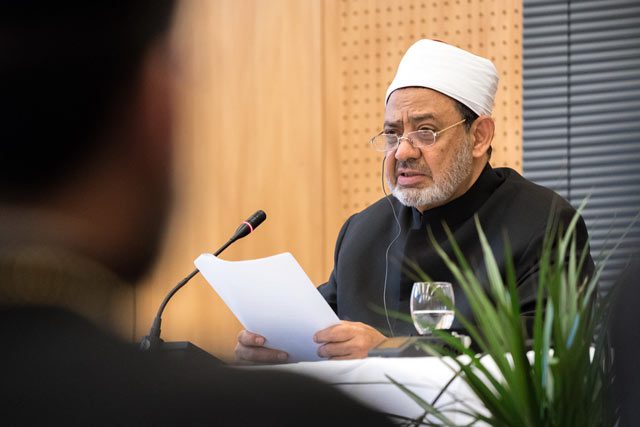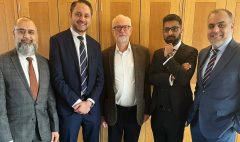Grand Imam calls for collaboration against violence and poverty
October 6, 2016 2023-08-19 15:27Grand Imam calls for collaboration against violence and poverty

Grand Imam calls for collaboration against violence and poverty
The chief cleric of Cairo’s prestigious mosque and university, H.E. Professor Dr Ahmad Al-Tayyeb, the Grand Imam of Al-Azhar al Sharif, has decried the present-day “civilizational crisis” of poverty and insecurity and called for interreligious collaboration to address it.
Dr al-Tayyeb in his lecture on “The Responsibility of Religious Leaders in Building World Peace” urged Christians and Muslims “to follow our path as believers from the different parts of the world, in order to realize humanity’s hope to overcome the uncivilized obstacles that could bring us back to the era of darkness, ignorance and the law of the jungle.”
Al-Tayyeb’s lecture followed the two-day dialogue and planning sessions of the Muslim Council of Elders with a delegation from the World Council of Churches (WCC) in Geneva. It took place during 70th anniversary celebrations at the Ecumenical Institute, Bossey, Switzerland, on 1 October. The Grand Imam’s visit, which he and the WCC general secretary, Rev. Dr Olav Fykse Tveit, called “historic and unprecedented,” came two months after a jointly organized youth seminar in Al-Azhar.
The lecture, before an audience of about 150 persons, included a radical critique of the reigning powers and secular assumptions of the present world order. Even if nonreligious factors “can realize modernity, technological and scientific development,” the Grand Imam said, “they have failed to grant humankind a life of security, stability and peace.”
Al-Tayyeb particularly criticized widespread cynicism and secularism. The modern era, he said, marked by a loss of religious values, has been scorched by the prevalence of armed conflict (including two world wars), which is fueled by the arms trade. Its geopolitical configuration “led to the happiness of a limited category of individuals at great cost to the majority of people, living in extreme poverty.”
Source: The World Council of Churches








